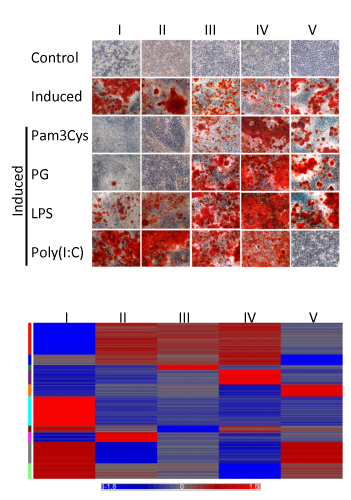Mesenchymal stromal progenitor cells (MSCs) are multipotent and easily expanded in culture, and therefore are an attractive cell-based therapy tool for developmental defects, degenerating diseases and tissue injuries. There are many indications that MSCs are a highly heterogeneous population within the culture preparation. However, heterogeneity between independent MSC preparations was overlooked thus far. In this study we compared different populations of MSC phenotypes and examined the differences in their functions in response to molecular regulators, the TLR ligands. We found that independent populations of MSCs show variable level of differentiation, migration and proliferation. While TLR activation affected MSC differentiation in a heterogeneous manner, MSC basal migration and proliferation were affected generally in a uniform manner. Furthermore, MSCs maintained varying responses to molecules related and unrelated to TLR signaling pathway, IL-1β and TNFα. This extends MSC heterogeneity from a specific signaling pathway to a general phenotype of different preparations. The existence of phenotypically different MSC populations might indicate the presence of functionally different clones in the bone marrow. This was confirmed by heterogenic response to TLR activation by MSC clones originated from an individual mouse, when each clone was obtained from a single CFU-F (colony forming unit – fibroblast).



